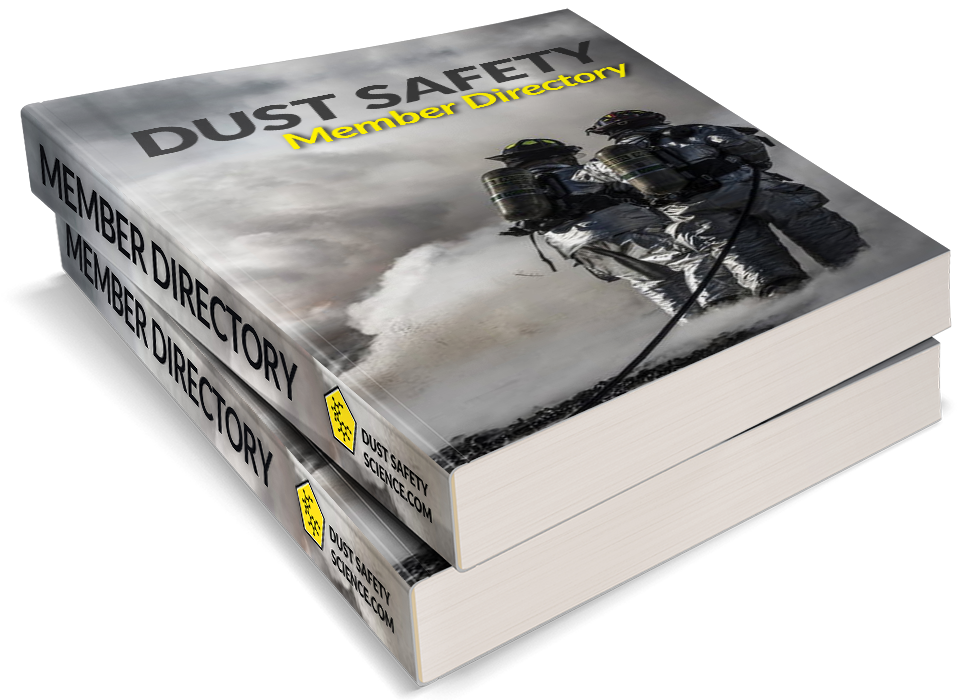In the last podcast episode, we talked about the 1916 Quaker Oats Explosion in Peterborough, Ontario: how it happened and the lessons learned. Today, we’re highlighting the human element and the social and economic impact that disasters of this magnitude have on the community in general and individual families in particular.
The Human Impacts of Combustible Dust Disasters
Jane Garvey Gill is co-chairwoman of the Quaker Oats Fire Descendants Organizing Committee. Her grandfather, William John Garvey, was employed at Quaker Oats and working on December 11, 1916, the day the explosion occurred.
According to Jane, Garvey was in the northwest side grain elevator when it happened. He ended up being buried in hot grain up to his neck. When rescuers dug him out, his clothing was gone and his eyelashes and brows were burned off.
“(It) was all to do with the dust, it had built up to that extent,” Jane says. “I don’t know how to stress enough how you’re supposed to keep a workplace clean. These people go in there to make a living- they shouldn’t have to give their life up too.”
When the building collapsed, it took out the boiler and a lot of the water lines that led to the sprinkler systems, so the fire raged everywhere. It was so hot that big pieces of metal machinery were later found melted together.
Jane’s grandparents lived across the river from the Quaker Oats plant, so her grandmother could see everything happening.
“She could see that it blew apart. The one side of the walls were gone. The fires were burning. People apparently were screaming too. I mean, she was just beside herself and she had five children to look after. My aunt said, right to the day she died, she still had that memory of burning food.”
Jane’s great-uncle was one of many people who tried to get into the burning building to pull relatives out, but the heat forced them back.
When William Garvey was rescued, they brought him home to die because he didn’t appear to have much time left. They put wet pads on his eyes because his eyelids had been burned off. He ended up getting the Spanish Flu, which was going around at the time, and died.
The death had a major impact on the Garvey family. His son (Jane’s father) had to leave school and go to work at the age of ten. Quaker Oats gave his widow a job, but the pay wasn’t enough to support five children and the family lost their home.
Never Forgotten
The Quaker Oats explosion has never been forgotten. The 4th Line Theatre in MIllbrook did a play called ‘The Hero of Hunter Street’ about the fire. Jane and other members of the Quaker Oats Fire Descendants Organizing Committee provided the producers with personal stories and insights that made the play stronger.
Profit Over Safety
In December 1916, Quaker Oats was busy producing cereal for the army, which may have impacted its safety protocols. It was a case of, as Jane puts it, “Let’s get the production out and we’ll worry about the safety part and cleaning up after.”
She insists that health and safety committees are essential.
“I really believe that every company should have a health and safety committee (that is) constantly checking things out in their workplace to make sure that if dust is a problem, things are being cleaned up. Because if not, it’s going to happen again. And the company has to be involved in it. You have to hold their feet to it (or) they’ll just let it slide.”
Conclusion
“I just regret that all the people that have died, including my grandfather, didn’t get to tell their story,” Jane says. “They didn’t get to see their children grow up, and to see what they have become, and what could have become of them. You know, that’s a real loss, I think, to the city.”
It’s the type of loss that will, hopefully, one day be a thing of the past.
If you have questions about the contents of this or any other podcast episode, you can go to our ‘Questions from the Community’ page and submit a text message or video recording. We will then bring someone on to answer these questions in a future episode
Resources mentioned
Dust Safety Science
Combustible Dust Incident Database
Dust Safety Science Podcast
Questions from the Community
Dust Safety Academy
Dust Safety Professionals
Video
The Hero of Hunter Street
Facebook Group
Remembering the 1916 Peterborough Quaker Oats Fire
Thanks for Listening!
To share your thoughts:
- Leave a note in the comment section below
- Ask a question to be answered on the show
- Share this episode on LinkedIn, Twitter or Facebook
To help out the show:
- Subscribe to the podcast on iTunes
- Leave a review and rate our show in iTunes to help the podcast reach more people
Download the Episode
DSS120: Remembering the 1916 Quaker Oats Explosion in Peterborough, Ontario (Part 2)
